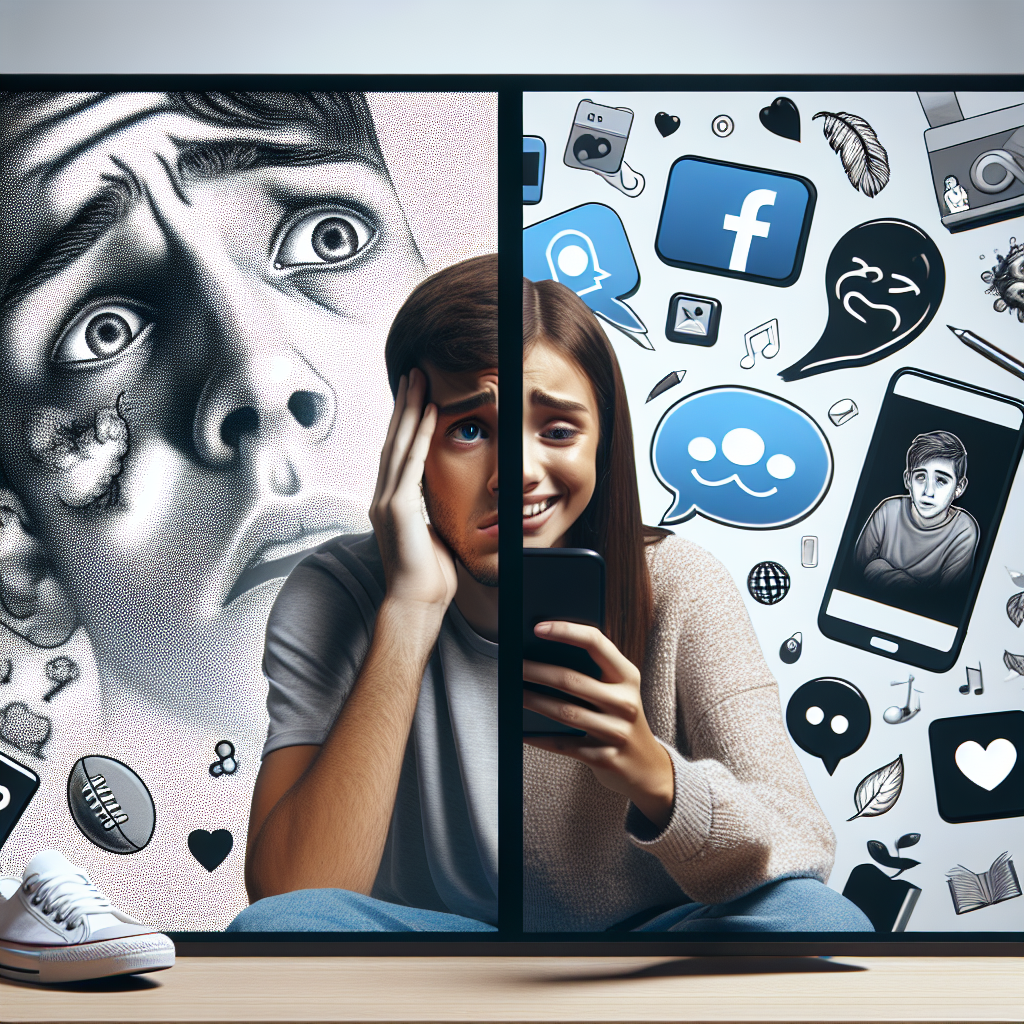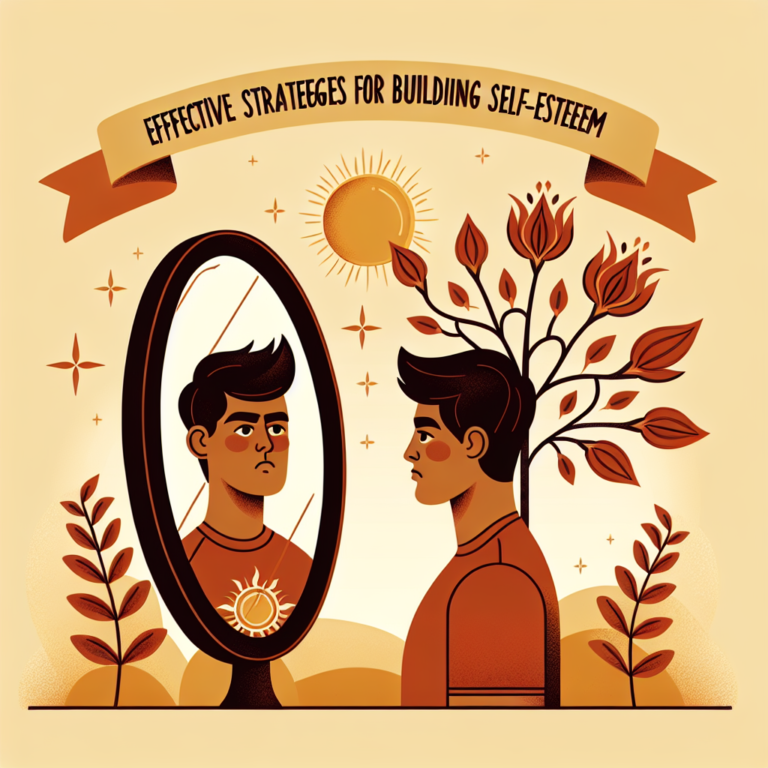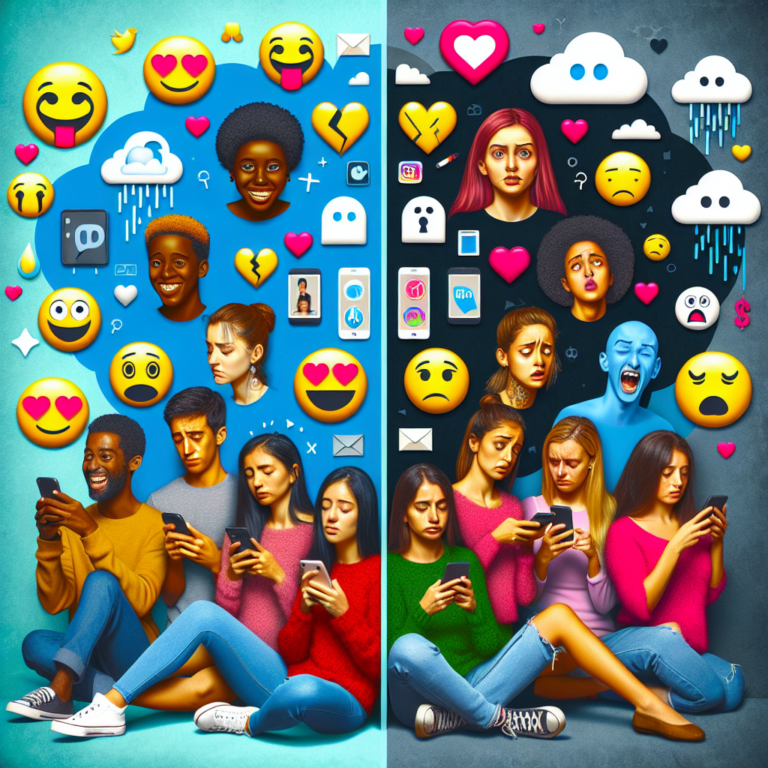
FOMO and Beyond: The Essential Guide to Exploring the Mental Health Consequences of Social Media for Teens
Introduction
In an age where social media dominates the landscape of communication, the fear of missing out, or FOMO, has become a prevalent part of teenage life. As teens scroll through their feeds, they encounter carefully curated snapshots of life that seem blissfully perfect. But beneath this shiny veneer lies a spectrum of mental health consequences that can profoundly affect young minds. This article, titled FOMO and Beyond: Exploring the Mental Health Consequences of Social Media for Teens, delves deep into the ways social media influences mental well-being, encouraging readers to reflect on their own digital habits and the implications they carry.
The Power of Connection—and Anxiety
The allure of social media lies in its ability to connect people across vast distances. For teens, who are navigating the tumultuous waters of adolescence, platforms like Instagram, Snapchat, and TikTok offer not just connection but validation. Yet, this need for connection often breeds anxiety.
Case Study: Online vs. Offline Interactions
A study conducted by the Pew Research Center reveals that 81% of teens believe social media allows them to express themselves and connect with others. However, the same research indicates that many report feelings of anxiety and depression linked to their online presence.
Analysis: This juxtaposition paints a complex picture. While social media can enhance feelings of belonging, it can also exacerbate loneliness when online interactions replace face-to-face connections.
What Is FOMO, Exactly?
FOMO, an acronym for "fear of missing out," is more than just a passing trend—it’s a psychological phenomenon that can severely impact mental health. It manifests through feelings of anxiety and isolation when individuals perceive they are missing out on social events or experiences.
Understanding FOMO’s Roots
FOMO is rooted in our innate desire for social connection. It heightens when teens compare themselves to their peers, leading to feelings of inadequacy.
Example: The "Highlight Reel Effect"—where individuals present only the best aspects of their lives—can intensify these feelings, making others believe they are missing out on something extraordinary.
The Psychological Impact of Social Media on Teens
The mental health consequences of social media usage are becoming increasingly evident. Picture this: a teen posts a picture and anxiously waits for a barrage of likes. Each notification brings a fleeting sense of validation, but when the likes don’t pour in, feelings of worthlessness and sadness can creep in.
Key Areas Affected:
Anxiety: Constant engagement with social media can lead to heightened anxiety levels. The compulsive need to check notifications can create a cycle of stress and worry.
Depression: Research indicates that excessive use of social media is correlated with increased rates of depression among youth.
- Body Image Issues: Approximately 70% of teens report feeling pressure to look perfect online, contributing to body dissatisfaction.
Case Study: The Instagram Impact on Body Image
A prominent study highlighted by The Journal of Adolescent Health found a direct correlation between Instagram usage and body image issues among teenage girls. Those who spent more time on the platform were more likely to report dissatisfaction with their bodies.
Analysis: Such case studies highlight the profound negativity social media can inflict upon fragile teenage self-esteem, leading to severe mental health outcomes.
Navigating the Terrain: Strategies for Teens and Guardians
Increasing awareness about FOMO and Beyond: Exploring the Mental Health Consequences of Social Media for Teens is crucial, but understanding how to navigate this digital landscape is equally important. Here are some practical strategies to mitigate risks:
1. Encourage Digital Detoxes
Promoting regular breaks from social media can be transformative. Even short breaks can alleviate feelings of anxiety and foster healthier relationships with technology.
2. Highlight Authenticity
Encouraging teens to focus on authenticity instead of validation can foster healthier self-esteem. Sharing unfiltered moments can alleviate the pressure to present a glossy lifestyle.
3. Foster Open Conversations
Creating safe spaces where teens can express feelings surrounding social media can be invaluable. Open dialogue helps demystify experiences and normalize struggles.
4. Mindfulness Practices
Teaching mindfulness techniques can help teens stay grounded and reduce anxiety. Practices like meditation or journaling encourage self-reflection, allowing teens to reconnect with their inner selves.
5. Educate about FOMO
Understanding the psychological phenomena at play is empowering. Knowledge about FOMO and Beyond: Exploring the Mental Health Consequences of Social Media for Teens can help teens recognize when they are experiencing these feelings and find healthier coping mechanisms.
Useful Tools and Resources
To further equip teens and their guardians, here are some beneficial resources:
Mindfulness Apps: Headspace and Calm offer guided meditations aimed at reducing anxiety and promoting grounding techniques.
Support Groups: Organizations like Teen Line provide resources and peer support for teens struggling with mental health issues related to social media.
- Books on Self-Esteem: Titles like The Gifts of Imperfection by Brené Brown can help foster acceptance and authenticity.
Conclusion
As we reflect on FOMO and Beyond: Exploring the Mental Health Consequences of Social Media for Teens, it is vital to recognize the thin line between connection and obsession. Social media, with all its complexities, offers both community and anxiety in equal measure. By fostering open conversations and instilling strategies for healthier interactions, we can cultivate resilience in our teens. Encourage them to embrace authenticity over perfection, and remind them that their worth is not defined by the number of likes they receive.
In doing so, we empower the next generation to navigate their digital lives with purpose and poise, fostering a robust mental health outlook.
FAQs
1. What is FOMO?
FOMO, or the fear of missing out, describes feelings of anxiety over the possibility of missing a rewarding experience that others are having, often fueled by social media.
2. How does social media impact teen mental health?
Excessive social media use can lead to increased anxiety, depression, and body image issues due to unrealistic comparisons with peers.
3. Can social media have any positive effects on teens?
Yes, social media can encourage connection, foster friendships, and enable creative expression, but it’s essential to manage usage carefully.
4. What strategies can help teens manage FOMO?
Encouraging digital detoxes, promoting authenticity, fostering open conversations about feelings, and implementing mindfulness practices can help teens manage FOMO effectively.
5. Are there resources available for teens struggling with social media-induced mental health issues?
Yes, platforms like Teen Line provide peer support, and various mindfulness apps can guide teens in reducing anxiety and improving mental resilience.
By aiming for balance and understanding, parents, educators, and teens can work together toward a healthier social media relationship. As we dive into the future, let’s ensure it prioritizes mental well-being alongside connection.

















